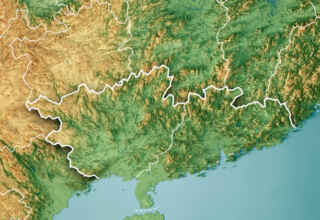
Crimes against humanity of Saudi Arabia & UAE in Yemen Download from here
Legal study, by Mahmoud Refaat: The European Institute for International Law and International Relations.
The worst humanitarian crisis is currently raging in Yemen. Yemen is the poorest nation on the shores of the Arabian Peninsula. The wars in Yemen have made things worse. Humanity also trembles at the sight of the atrocities taking place here. The 21st century, on the one hand, speaks volumes about the progress of human beings, on the other hand, it speaks volumes about the cruelty and barbarism of human beings against human beings. Human lives are
worse than animals because of the bloody war in Yemen. Even animals would cry when they saw the atrocities against human beings there. Nevertheless, the world is insensitive to these atrocities and humanity is being trampled mercilessly[1].
The war in Yemen start in 2014-2015, when Shia insurgent has restricted to Iran and had revolted against the Sunni state that has been occupied Yemen’s largest city and capital Sana’a, demanding lower fuel prices and the establishment of a new government. After failed negotiations and widespread protests, the rebels occupied the presidential palace in January 2015 and forced President Abd Rabbu Mansour Hadi and his government to resign. Since March 2015, the Saudi Arabian Gulf Coalition, with the help of logistical support and US intelligence, has carried out economic isolation and air strikes against the Houthi rebels.[2] As a result, Hadi gave up his retirement and returned to Aden in September 2015. Since then, the struggle has continued rising substantially the number of casualties and the pain among the Yemeni people. In the summer of 2016, the United Nations worked to facilitate peace negotiations between allied insurgents and Yemen’s international government. The government of Husseis and former President Ali Abdullah Saleh were overthrown in 2016 and have been in power for nearly 30 years, and announced the establishment of a “political committee” for the governments of Sana’a and other regions [1].
However, in December 2017, Saleh broke with Houthis and asked his followers to use them to defend themselves. Saleh was killed and his troops were defeated in two days. Since April 2015, due to Saudi Arabia’s naval blockade, regional forces have intervened in the conflict in Yemen, including the Gulf countries led by Saudi Arabia and UAE, and may also lead to the interception of many Iranian arms shipments to the Houthi rebels in the Gulf of Aden. He later sent a naval frigate, which increased the risk of military escalation between the two countries. At the same time, the conflict continues to hit Yemeni civilians severely, making Yemen the worst humanitarian crisis in the world.
In this context, the United Nations estimates that more than 15,000 civilians have been killed or injured, 4 million have been displaced from their homes and 22 million Yemeni still need help, 8 million are at risk of starvation, and more than 1 million are affected by the cholera and measles epidemic, in addition to the unknown impact of the Covid-19. Violation of human rights and humanitarian law: Islamists claim that along with the ongoing civil war, the United States continues to carry out counter-terrorism operations in Yemen, relying mainly on-air strikes against militants and al Qaeda in the Arabian Peninsula, which continues play a central role in the scarcely-populated areas of east Yemen. The United States has carried out about 34 terrorist attacks in the country. About 133 were launched in 2016. In April 2016, the United States deployed a small unit to provide advice and assistance to the Saudi army in order to return versus the AQAP territory and obliterate the biggest threat for the US in the country. In Yemen, UN soldiers and militants are believed to be connected to AQAP, and an unknown number of Yemeni civilians were killed due to terrorists attacks mainly in the south and in populated areas of Aden[3].
[1]https://www.bbc.com/news/world-middle-east-29319423
[2]https://www.google.com/url?sa=t&source=web&rct=j&url=https://www.cfr.org/global-conflict-tracker/conflict/war-yemen&ved=2ahUKEwj25P3ZlbzwAhXeQUEAHbABBmIQFjAKegQIFxAC&usg=AOvVaw3-uUcIroJrIGFRClkWYRjh












